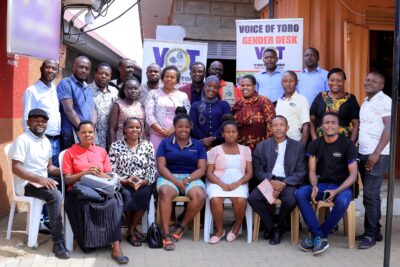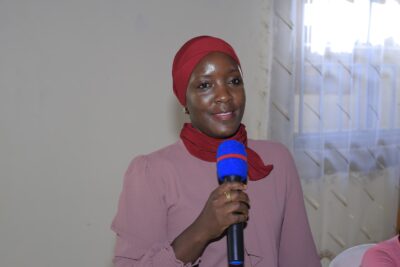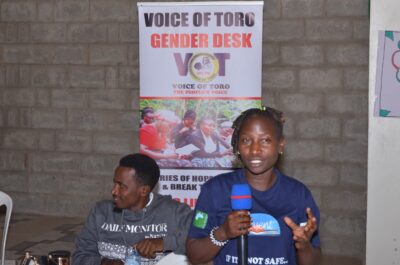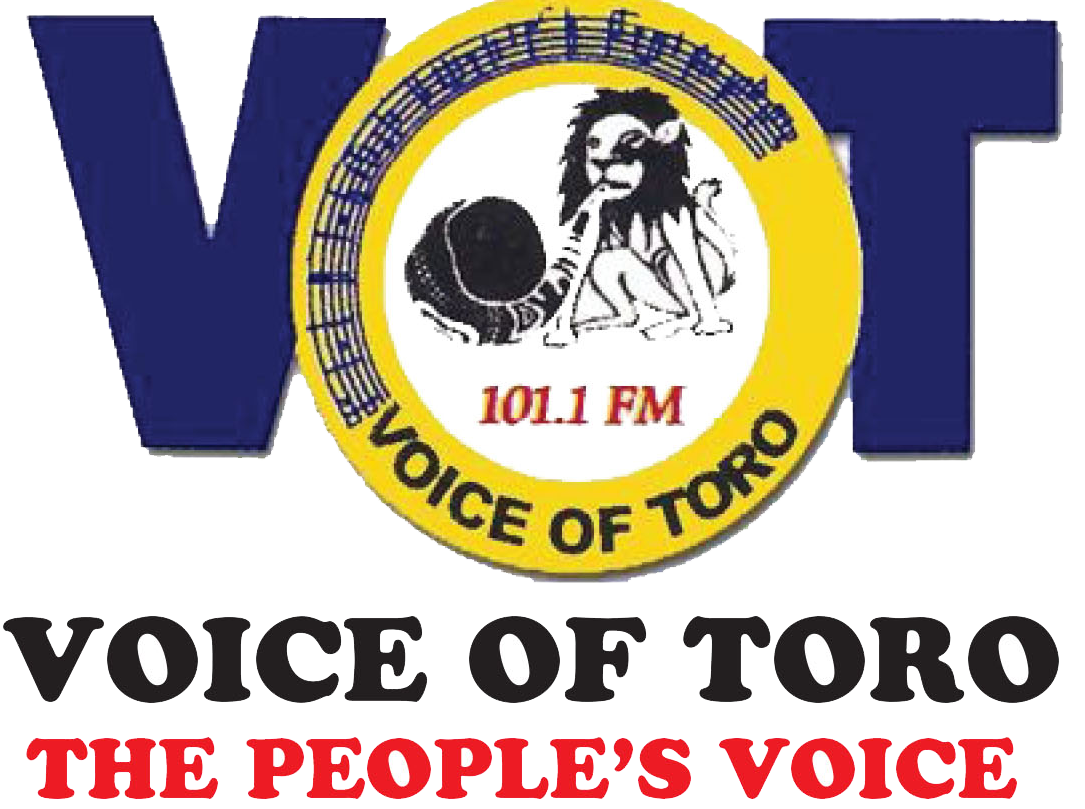Rwenzori Journalists trained to promote gender equality and combat stereotypes on sexual reproductive health.
BY HOPE LEONTINA.
Championing Gender Equality through Media Programming
In a bid to champion gender equality and debunk persistent gender norms, journalists from the Rwenzori sub-region gathered for a two-day training on gender-sensitive media programming.

The call was made during a two-day training of journalists and stake holders on gender-sensitive media programming that was conducted by Voice of Toro Gender Desk on Thursday and Friday which took place at AK Garden City in Fort Portal City supported by the Graduate School of Media and Communication.
During the training, Ms Betty Mujungu, the team leader of the Voice of Toro Gender Desk, emphasized the detrimental impact of cultural norms on gender equality.
She urged journalists to deconstruct and question norms through their storytelling and radio programs thereby fostering a more inclusive society.
‘‘the media sets the agenda of every community, therefore entrenched toxic norms are to some extent because the media has not taken interest in questioning toxic and deconstructing norms that are deliberately failing women to thrive.’’
Engaging boys and men in the Fight for Gender Equality

Highlighting the importance of male involvement in promoting gender equality, Ms Lenah Naddungu from FIDA-Uganda emphasized the need for men to actively support the realization of gender equality.
She said there are persistent gender norms in some communities where women are relegated to domestic roles and denied decision-making power within the family.
“Women also deserve the treatment which is being enjoyed by men, women are not advocating for sex equality but rather gender Equality, it is not an anti-male campaign but we are advocating for our rights, some cultural beliefs were put by men for their selfish interests, how can you say that a woman should not eat certain foods, to remain at home to take care of men as they enjoy life, this has to change,”
Ms Naddungu stressed that gender equality advocacy is not anti-male but a fight for equal rights and opportunities for all genders and called for the eradication of cultural beliefs that serve men’s selfish interests, such as restricting women’s activities and choices.
She said addressing gender norms is essential for women to thrive and contribute to their families beyond solely financial dependence on their husbands and appealed to the government to establish policies that create an enabling environment for women to excel in all aspects of life.
“If all gender norms that are standing in the way of achieving gender equality are addressed, women will thrive and will be in a position to support their families without financially depending on their husbands all the time,” she said.
Promoting Sexual Reproductive Health Rights
Ms Pudens Tayebwa from Reproductive Health Uganda urged journalists to play a vital role in empowering communities with accurate information about sexual reproductive health rights and modern family planning methods.
She said that the data from the 2022 Uganda Health Demographic Survey, indicate that the use of family planning stands at 43 percent, with an unmet need at 23 percent.
“At Reproductive Health Uganda, we have been receiving women coming to our facilities complaining that their husbands don’t allow them to make decisions on a method to use for family planning, some women are beaten for using family planning methods, and journalists need to debunk myths and misconceptions about the use of family planning,” Tayebwa said.
Journalists’ Reflections on the Training
Participants expressed their gratitude for the training, noting its significance in enhancing their understanding of gender equality issues and sexual reproductive health.
Mr Alex Ashaba from Daily Monitor emphasized the role of journalists in setting the agenda and challenging societal norms through their reporting and pledged to use his newfound knowledge to tell impactful stories that promote gender equality and debunk harmful myths.
“As journalists, it’s our role to set the agenda in communities about gender equality. We need to debunk some of the gender norms in our societies. The training helped me understand sexual reproductive issues, and with the knowledge gained, I will be able to tell stories,” he said.

Ms. Sylvia Kugonza a journalist at Jubilee Radio fort portal, said during the training she particularly gained an understanding of the distinction between gender and sex.
She said sex is biologically determined, gender is a social construct influenced by societal perceptions and she expressed her commitment to sharing stories that challenge stereotypes and inspire positive change, drawing from others’ experiences and successes.
Police Commitment to Protecting Women and Children
SP Agnes Angom, head of the child and family protection unit at Fort Portal Central Police Station, said that police will keep expediting in handling all cases reported to her office to make sure that all perpetrators are prosecuted in court.
Progress in Family Planning
“The recently released findings from the Uganda Demographic and Health Survey of 2022 indicate that Uganda is on course to achieving Universal Coverage for Family Planning under FP 2030 commitments. Modern contraceptive prevalence rate improved from 30.4 percent in 2016 to 38 percent in 2022, for unmarried people where youth constitute a critical mass registered an even better improvement from 40 percent in 2016 to 43 percent in 2022,”


